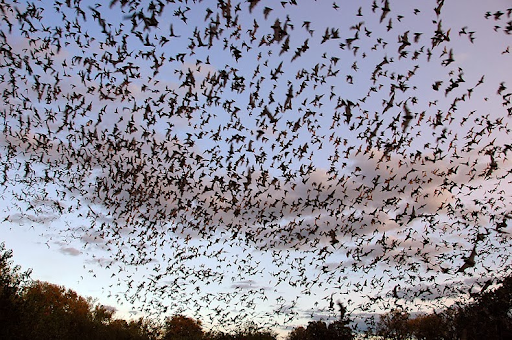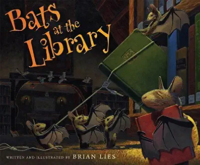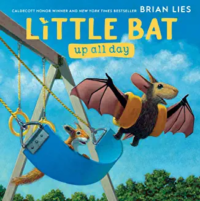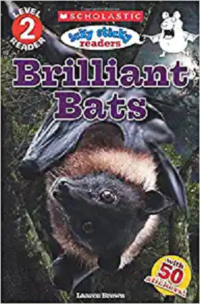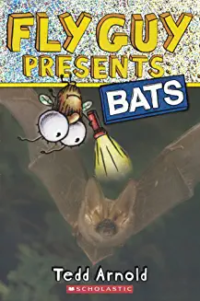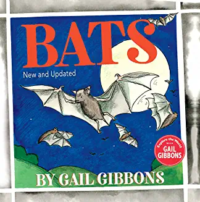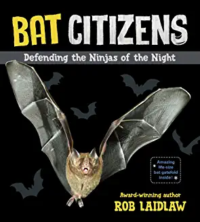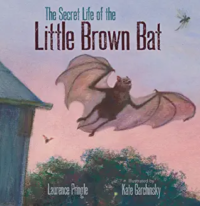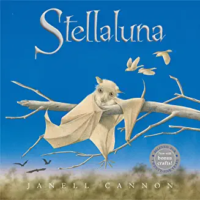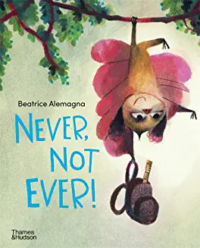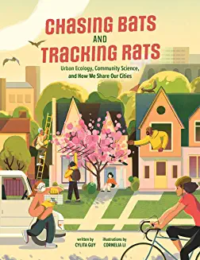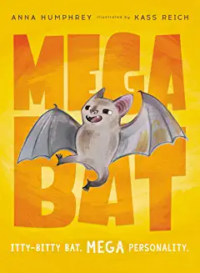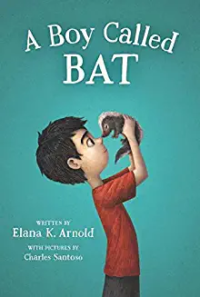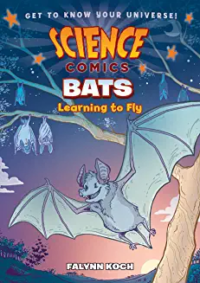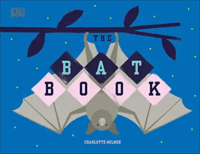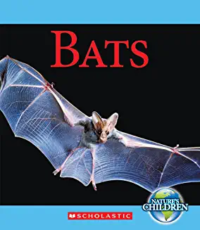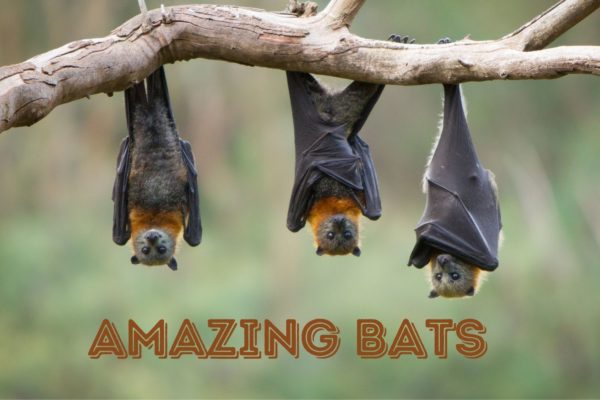
Bats get a bad rap from the whole blood-sucking vampires turn into a bat myth. Bats really do so much for the environment from insect control to ensuring pollination of many of our favorite foods. Check out these great bat books and facts!
10 Amazing Bat Facts
Books
Bats at the library by Brian Lies
Bored with another normal, inky evening, bats discover an open library window and fly in to enjoy the photocopier, water fountain, and especially the books and stories found there.
Little Bat up all day by Brian Lies
Little Bat has to know. What is daytime like? He has lots of questions about what happens while bats are asleep. Where do the stars go? And just who’s awake in the daytime, anyway? Luckily, Rusty, the squirrel is there to show him around. But can Little Bat stay awake all day? And how is it possible for two animals, one nocturnal and one diurnal, to be friends? Join Little Bat and Rusty as they discover how to stay connected–no matter what time of day it is.
Brilliant bats by Laaren Brown
Full of cool facts about bats, from how they fly to their super senses to how they sleep upside down!
Fly Guy presents : bats by Tedd Arnold
Learn all about bats with Fly Guy! It’s time for a field trip! Fly Guy and Buzz are going into a bat cave to learn all about bats. With straightforward text, humorous asides, and kid-friendly full-bleed photographs throughout, young readers will love learning all about these nocturnal creatures.
Bats by Gail Gibbons
There are about 1,100 different kinds of bats, and they live on every continent except Antarctica. The book offers an intriguing look at some of the many different kinds of baths, their amazing abilities, and how these mammals fit into the natural world.
Bat citizens : defending the ninjas of the night by Rob Laidlaw
An innovative full-color work about bats biology, habits, and history, and the bat conservation efforts of young people around the world.
The secret life of the little brown bat by Laurence Pringle
This gorgeous and lyrical nonfiction picture book follows a year in the life of a little brown bat named Otis as he learns to be a hunter, escape predators, and find a mate. Stunning, realistic illustrations celebrate the beauty of these mysterious creatures as readers learn important facts through an engaging and fascinating story.
Stellaluna by Janell Cannon
After she falls headfirst into a bird’s nest, a baby bat is raised like a bird until she is reunited with her mother.
Never, not ever! By Beatrice Alemagna
When Pascaline, a little bat, screams “Never, Not Ever” in response to going to school, something extraordinary happens, which changes her mind.
Chasing bats and tracking rats : urban ecology, community science, and how we share our cities by Cylita Guy
Gripping narrative non-fiction with STEM and social justice themes that proves cities can be surprisingly wild places–and why understanding urban nature matters. What can city bees tell us about climate change? How are we changing coyote behavior? And what the heck is a science bike? Featuring the work of a diverse group of eleven scientists–herself included!–Dr. Cylita Guy shows how studying urban wildlife can help us make cities around the world healthier for all of their inhabitants. In the process, Guy reveals how social injustices like racism can affect not only how scientists study city wildlife, but also where urban critters are likelier to thrive. Sidebars include intriguing animal facts and the often-wacky tools used by urban ecologists, from a ratmobile to a bug vacuum. Cornelia Li’s engaging illustrations bring the scientists’ fieldwork adventures to life, while urban ecology challenges encourage readers to look for signs of wildlife in their own neighborhoods.
Megabat by Anna Humphrey
Daniel Misumi has just moved to a new house. It’s big and old and far away from his friends and his life before. AND it’s haunted … or is it? Megabat was just napping on a papaya one day when he was stuffed in a box and shipped halfway across the world. Now he’s living in an old house far from home, feeling sorry for himself and accidentally scaring the people who live there. Daniel realizes it’s not a ghost in his new house. It’s a bat. And he can talk. And he’s actually kind of cute. Megabat realizes that not every human wants to whack him with a broom. This one shares his smooshfruit. Add some buttermelon, juice boxes, a light saber and a common enemy and you’ve got a new friendship in the making! This charming, funny story is brought to life by Kass Reich’s warm and adorable illustrations. There’s never been a bat this cute–readers will be rooting for Megabat and Daniel from page one!
A boy called Bat by Elana K. Arnold
For Bixby Alexander Tam (nicknamed Bat), life tends to be full of surprises — some of them good, some not so good. Today, though, is a good-surprise day. Bat’s mom, a veterinarian, has brought home a baby skunk, which she needs to take care of until she can hand him over to a wild-animal shelter. But the minute Bat meets the kit, he knows they belong together. And he’s got one month to show his mom that a baby skunk might just make a pretty terrific pet.
Bats : learning to fly by Falynn Koch
In Bats, we follow a little brown bat whose wing is injured by humans on a nature hike. He is taken to a bat rehabilitation center where he meets many different species of bats. They teach him how they fly, what they eat, and where they like to live.
The bat book by Charlotte Milner
Discover why these mammals are essential to the world we live in, learn just how much they matter, why they are under threat, and what we can do to help. Bright, bold, and beautiful illustrations accompany fascinating fun facts about these furry flying mammals in this adorable kids’ book.
Bats by Jennifer Zeiger
This book examines the behavior and habitats of bats.

